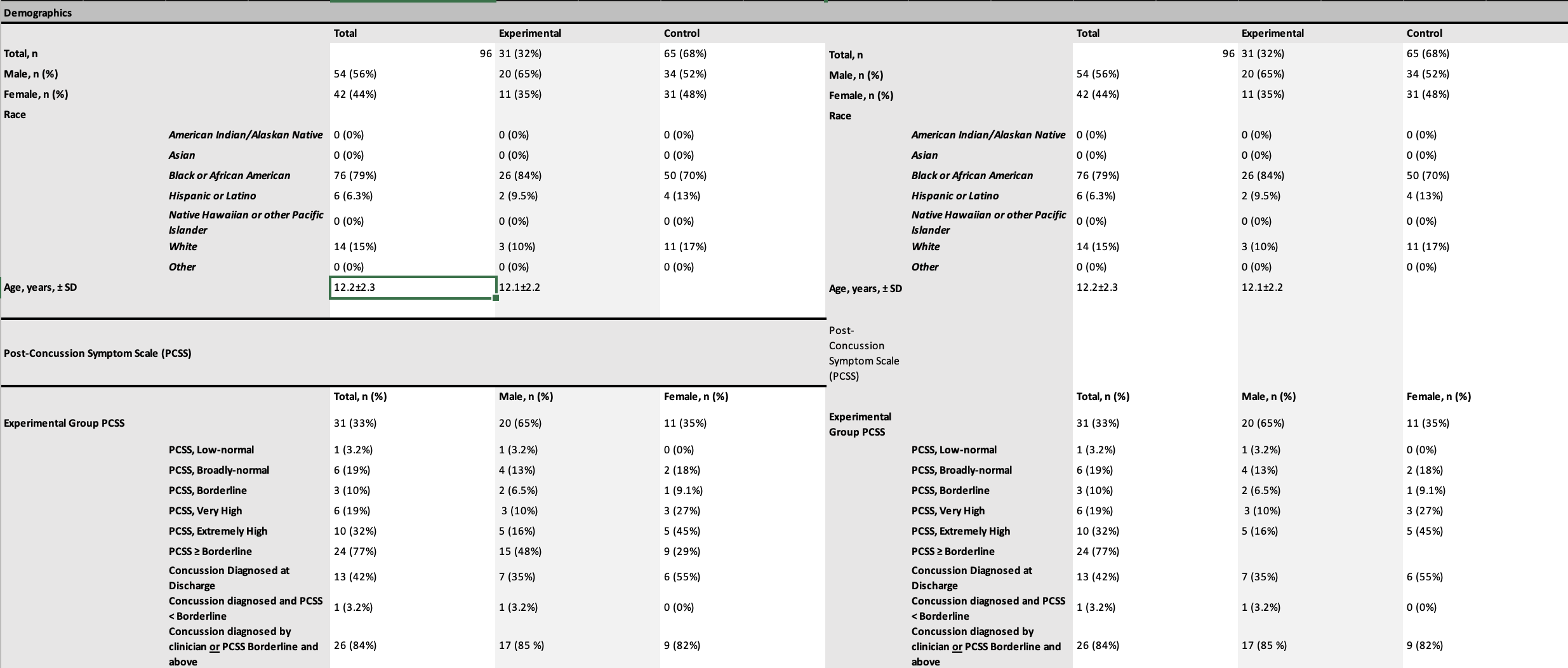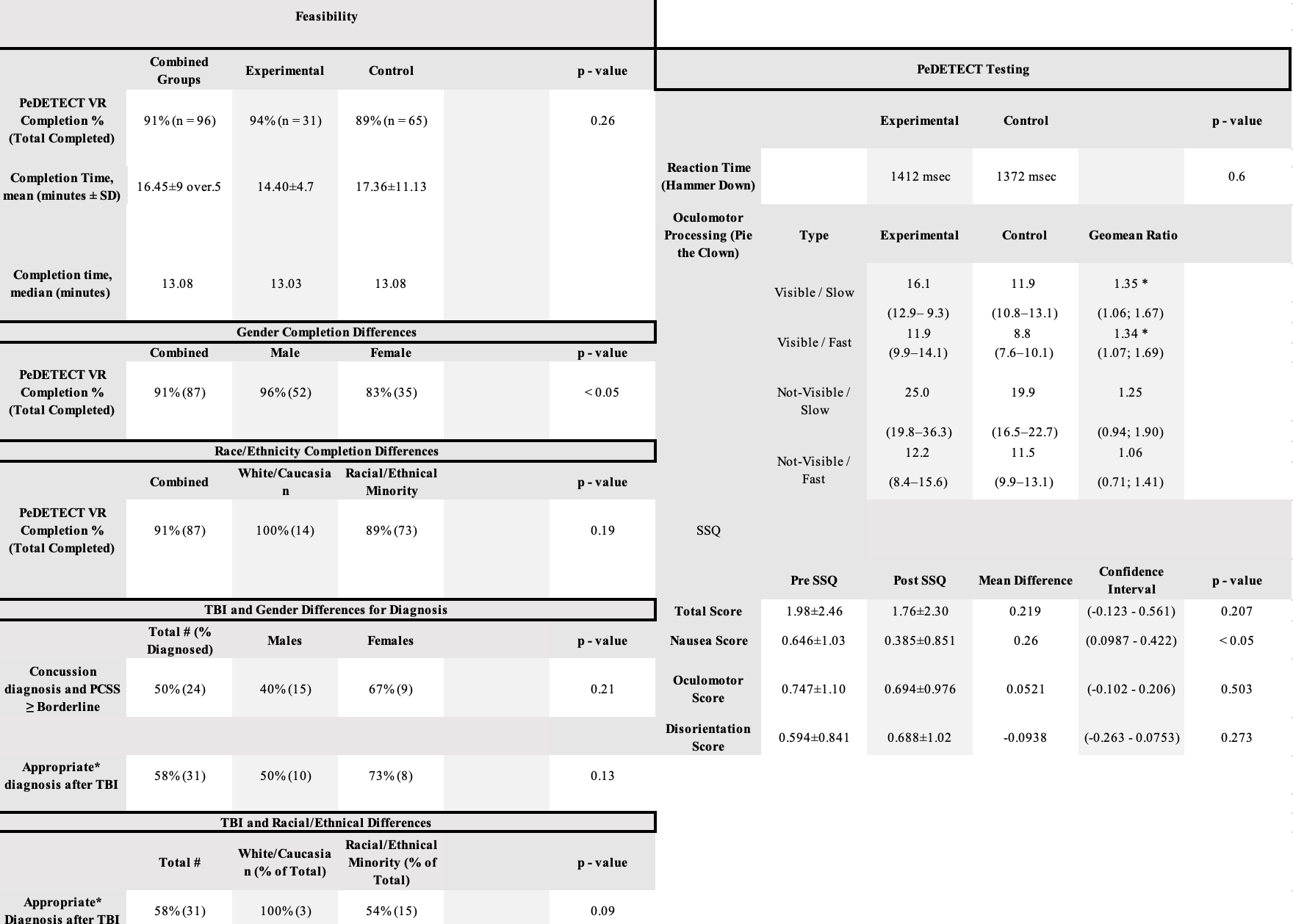Emergency Medicine
Session: Emergency Medicine 10: Trauma
404 - Virtually Possible: Feasibility of VR concussion tools in the pediatric emergency department
Monday, May 6, 2024
9:30 AM - 11:30 AM ET
Poster Number: 404
Publication Number: 404.2848
Publication Number: 404.2848

Rob Grell, MD (he/him/his)
Fellow, Pediatric Emergency Medicine
Emory University School of Medicine
Decatur, Georgia, United States
Presenting Author(s)
Background: Concussion impacts over a half million pediatric patients annually and can lead to significant and protracted symptoms in up to 30% of patients. Early recognition and intervention have been shown to improve long term outcomes, but upwards of 60% of patients with concussions leave the ED without a diagnosis.
Concussion is a clinical diagnosis that requires interrogation of multiple domains of brain function to detect. Lengthy testing protocols and subjectivity hampers current assessment in the ED. Multimodal testing within an immersive virtual environment has potential to provide an objective diagnostic aide for austere settings.
Objective: To determine if VR-based assessment tools are feasible for use in children in the pediatric ED.
Design/Methods: A prospective study on feasibility of use of a VR-based concussion assessment tool was performed for pediatric patients between the ages of 9-and-17-years-old between July 2021 and December 2022. Enrollment was performed in the ED for both experimental and control groups. The experimental group had 32 patients assigned with recent TBI or concussion; 1 child was removed from analysis, leaving 31. The control group had 68 patients assigned without recent TBI; 3 withdrew assent due to complications associated with their non-TBI injury, leaving 65. The primary endpoint was completion of the PeDETECT tool. Secondary analysis included reaction time and oculomotor tracking testing from the PeDETECT module, pre-and-post SSQ assessment, PeDETECT completion time, and physician detection of concussion in pediatric patients with TBI.
Results: 96 children were enrolled into both the experimental (31) and control (65) groups. Feasibility was met in both groups (89.6%). The experimental group completion rate was 93.5%, while the control group completion rate was 87.7 %. There was a statistically significant difference in completion rate between genders as males (55%, n = 53) had a higher completion rate (96.2%, p < 0.05) compared to females (83.7%). Concussion was either diagnosed by physician or Post-Concussion Symptom Scale in 84% of all patients in the experimental group and there was no statistically significant increase in SSQ in TBI patients after VR.
Conclusion(s): This study shows that it is feasible to use VR-based tests in children between the ages of 9-and-17-years-old in an ED setting. The ease of completion and speed of the multimodal PeDETECT tool also suggests potential use in other austere environments such as schools and sidelines of sporting events.


